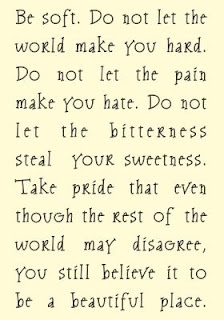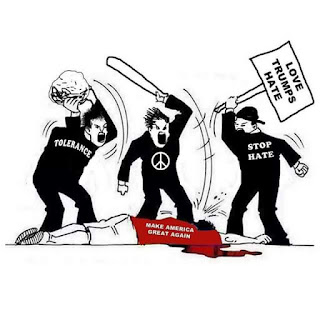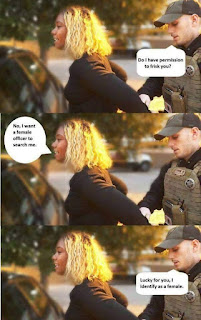Panama cuts diplomatic ties with Taiwan, switches to Beijinghttps://t.co/P2MdBgsY5V— GlobalAwareness101 (@Mononoke__Hime) June 13, 2017
Channel News Asia
written by Staff and agencies
Monday June 13, 2017
PANAMA CITY: China delivered another diplomatic punch to Taiwan on Tuesday (Jun 13) by establishing relations with Panama at the expense of Taipei, further isolating the island's Beijing-skeptic government.
China, which considers self-ruled Taiwan a renegade province waiting to be reunited with the mainland, has been infuriated by President Tsai Ing-wen's refusal to acknowledge the island as part of "one China", unlike her predecessor Ma Ying-jeou.
Panama is the third country to switch allegiance to China since Tsai's Democratic Progressive Party was swept to power last year, China's nationalistic Global Times reported, warning more would follow in a "domino effect".
"This is the cost the Tsai administration needs to pay," the newspaper said in an editorial.
'HISTORIC MOMENT'
Chinese Foreign Minister Wang Yi and his Panamanian counterpart Isabel Saint Malo de Alvarado toasted with champagne in Beijing after signing a communique formalizing the establishment of diplomatic relations while angering Taiwan.
"This is a historic moment, China-Panama relations have opened a new chapter," Wang said, adding that Panama's decision was in "complete accordance" with its people's interests and "in keeping with the times".
Saint Malo said Panama and China had made an "important step" and started a "new page in our strategic relations."
"It is just the beginning of a roadmap that we are establishing now to broaden our bilateral agenda."
After decades of siding with Taiwan, Panama now "recognizes that there is only one China in the world" and that Taiwan is part of Chinese territory, said the joint communique.
'TEACH A LESSON'
The Panama move infuriated Taiwan, which is still recognised by around 20 mostly small and economically weak countries, including Haiti, Tuvalu and Burkina Faso.
"Beijing's action has impacted the stable cross-strait status quo. This is unacceptable for the Taiwanese people and we will not sit back and watch our country's interests being repeatedly threatened and challenged," Tsai told reporters in Taipei.
"As the president, maintaining national sovereignty is my biggest responsibility. Greater challenge will bring stronger will. Taiwanese people's faith should not and will not be defeated easily. We will not be shaken."
TRUMP FACTOR
Diplomatic tussles between Taiwan and Beijing eased under the island's previous Beijing-friendly government, but relations have deteriorated since Tsai took office.
China "is seeking to undermine President Tsai while intimidating Taiwan by narrowing its international space," said Michael Cole, Taipei-based senior fellow with the China Policy Institute at the University of Nottingham.
Cross-strait tensions have been further exacerbated by a highly unusual call from Tsai to congratulate then US President-elect Donald Trump.
Trump questioned Washington's policy towards the island but later reiterated Washington's One China policy.
"I think the phone call has reinforced Beijing's determination to teach Taiwan a lesson," said Willy Lam, an expert on politics at the Chinese University of Hong Kong.
PANAMA CANAL
Panamanian President Juan Carlos Varela announced his decision in a nationally televised address.
"The People's Republic of China has always played a relevant role in Panama's economy," he said.
He said the announcement heralded "a new era of opportunities."
Chinese ships, after those from the United States, are the number two users of the Panama Canal, a crucial gateway for global trade between the Pacific and Atlantic oceans.
Beijing began construction last week of a container port, with natural gas facilities, in Panama's northern province of Colon.
"It's about who can give the most," said Carl Thayer, an emeritus professor of politics at the UNSW Canberra college in Australia. "Taiwan has resources but it can't match China."
Panama's deputy foreign minister Luis Miguel Hincapie, said on television on Tuesday that Panama hoped to open commercial offices in Panama and Taiwan to maintain their trade ties.
Through diplomatic ties with China meanwhile, "Panama can become a bridge for Asia to the whole of Latin America," said Trade and Industry Minister Augusto Arosemena on television channel Telemetro.
The Washington Free Beacon
written by Natalie Johnson
Monday June 13, 2017
Taiwan severed diplomatic ties with Panama on Tuesday to "uphold the sovereignty and dignity of the nation" one day after Panama cut ties with its longtime ally in favor of establishing relations with China.
Taiwan's President Tsai Ing-wen called Panama's decision "deeply regrettable" and issued a defiant message to Beijing that the island would not back down from its engagement with the international community.
"Although we have lost a diplomatic ally, our refusal to engage in a diplomatic bidding war will not change," Tsai said in a speech Tuesday.
"Although we have lost a diplomatic ally, our refusal to engage in a diplomatic bidding war will not change," Tsai said in a speech Tuesday.
"We are a sovereign country. This sovereignty cannot be challenged nor traded. China has continued to manipulate the ‘one China' principle and pressure Taiwan's international space, threatening the rights of the Taiwanese people, but it remains undeniable that the Republic of China [Taiwan] is a sovereign country. This is a fact China will never be able to deny," she continued.
Panama's government announced on Monday that it recognized "only one China in the world" and considered Taiwan an "inalienable part" of it. The statement directly undermined Taiwan's interpretation of the longstanding "one China" principle.
Only 20 countries, including the United States, and the Vatican now recognize Taiwan's sovereignty. The island has faced a series of diplomatic setbacks contributing to its isolation over the past decade.
Taiwan's Ministry of Foreign Affairs announced Tuesday it would immediately close its embassy in Panama City, withdraw all staff, and end all bilateral cooperation and aid programs in the country. The de facto embassy said Panamanian President Juan Carlos Varela "caved in to" economic pressure from Beijing.
"The ROC government strongly condemns Panama's act, and reiterates that it will not engage in checkbook diplomacy with the Beijing authorities," Taiwan's diplomatic arm said in a statement.
The move marks a significant setback for Taiwan.
Tsai visited Panama one month after taking office in June 2016 for the opening of the expanded Panama Canal. She returned to Central America in January for the inauguration of Nicaragua President Daniel Ortega, where she also visited Guatemala and Honduras to reinforce Taipei's commitment to its allies.
Taiwanese optimism that Washington would deepen its relationship with Taipei spiked after President Donald Trump engaged in a brief phone call with Tsai in December, but this has all but faded after the president's April meeting with Chinese President Xi Jinping in Florida.
Trump told Reuters in an interview shortly after the meeting that he would consult with Xi before again speaking to Tsai to avoid creating problems with the Chinese president.
Tsai warned Xi on Tuesday that Taiwan would "not sit idle" as its interests were "threatened and challenged," vowing never to surrender to Beijing's "intimidation."
Reuters News
written by J.R. Wu
Friday January 20, 2017
TAIPEI (Reuters) - Taiwan aspires to create a "new era" of peace with China as military action cannot resolve problems, Taiwan President Tsai Ing-wen said in a letter to Pope Francis, lauding Taipei's peaceful intentions at a time of tension with Beijing.
The issue of self-ruled and proudly democratic Taiwan has shot to the top of the international agenda since U.S. President-elect Donald Trump broke with decades of precedent last month by taking a congratulatory telephone call from Tsai.
That, along with subsequent comments by Trump that the "one China" policy was up for negotiation, has infuriated Beijing, which views Taiwan as a wayward province, to be brought under its control by force if necessary.
China is deeply suspicious of Tsai, whose ruling Democratic Progressive Party espouses the island's formal independence, a red line for Beijing, and has cut off a formal dialogue mechanism with the island.
Chinese military aircraft and warships, including its sole aircraft carrier, have also recently operated close to Taiwan in what China called routine drills.
In her Jan. 5 letter to the Pope, released by her office on Friday, Tsai said upholding peace across the Taiwan Strait needed goodwill and communication.
"Based on many years of experience in cross-Strait negotiations during my political career, I am convinced that military action cannot resolve problems," Tsai said.
"Taiwan and mainland China were once embroiled in a zero-sum conflict that caused tension in the region and anxiety among our peoples. In contrast, today people on the two sides of the Taiwan Strait enjoy stable lives and normal exchanges under peaceful separate governance."
Defeated Nationalist forces fled to Taiwan in 1949 after losing a civil war with the Communists.
Tsai added that Taiwan was committed to maintaining its democracy and the status quo of peace but would not bow to pressure.
"I urge the governing party across the strait, together with the governing party in Taiwan, to set aside the baggage of history and engage in positive dialogue," Tsai said.
TAIWAN'S VATICAN ALLY
The Vatican is one of only a handful of countries that still maintain formal diplomatic ties with Taiwan, though the Pope is trying to heal a decades-old rift with China where Catholics are divided between those loyal to him and those who are members of a government-controlled official church.
Tsai said she sought to heed the Pope's words of peace.
"As the first female president in the ethnic Chinese world, I aspire to live up to your words as I devote myself to enhancing the well-being of the Taiwanese people and creating a new era for cross-strait peace."
There was no immediate response from China to Tsai's comments.
But speaking earlier at a daily briefing, Chinese Foreign Ministry spokeswoman Hua Chunying again rounded on Taiwan for sending a delegation to Trump's Friday inauguration.
"The aim is to use this as an opportunity to interfere in and damage Sino-US relations," she said.
Taiwan's policy-making Mainland Affairs Council said it hoped China would not "intentionally seek to suppress normal interactions" between Taiwan and the United States.
Underscoring the recent tension between China and Taiwan, Japanese Self-Defense Forces will carry out a tabletop exercise next week simulating a military clash between China and Taiwan, under which Japan's military will rescue Japanese citizens and protect U.S. military ships, a source told Reuters in Tokyo.
Chinese spokeswoman Hua said Taiwan was in internal affair for China and Japan should speak and act cautiously on the issue.






































No comments:
Post a Comment